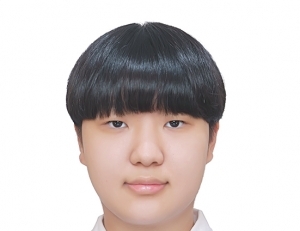After the appearance of many multicultural families and North Korean defectors, many policies were shaped to accommodate these changes. Among them, mentoring programs for multicultural family and defectors were implemented by the Korean Scholarship Foundation. Especially, among lots of universities, Kyonggi University is in charge for this part of Kyonggi Province. The Pharos would like to find out what the program is and what impacts the programs have on society.
First, the Pharos interviewed a director of a program in order to find out what the program is, how it operates, and the qualifications the mentor should have.
1. What is the multicultural mentoring program?
The multicultural mentoring program is a program that helps children from multicultural families learn and adapt to society. It also helps them enjoy school or develop adaptability in Korea. Moreover, it can change mentors’ prejudices about multicultural families.
2. What is the standard process for the selection of mentors and mentees? What do you think are the qualifications mentors should have?
I emphasize personality. In the past, I selected according to grades because I thought it would represent diligence. However, it’s not as important as humanity. Now, I assess the qualifications of mentors with an interview.
3. Where is the program implemented? How is the program operated?
The mentoring program is managed in the university to ensure the security of the mentor and mentee. If it is impossible for the mentee to come to the university, the mentor changes the place and time, and then the meetings are held in a library or local children’s protection center.
4. Have you had any memorable experiences related to mentoring?
Yes I have; it was changing and saving a mentee. One of mentees was a “Chinese Korean” from abroad. The child didn’t get attention from his parents and was bullied by other children. He had tried to kill himself, and he often told his mentor that he wanted to kill himself. However, I asked the mentor to listen to his story, and three months later, he opened his mind. The child confessed his depression was due to parental apathy and his life in a multicultural family. Since then, he has tried to change his personality, adjusted to school life, and studied hard. I think mentoring is a very necessary program that changes children.
To better understand the activities of multicultural mentoring, we met up with a student in the Department of International Relations who is currently holding mentoring classes to find answers to our questions from a mentor’s perspective.
1. How do you manage the class?
I teach brothers who are 6th grade and 3rd grade children. The 6th grade child usually studies Korean, Korean history, and Chinese characters. The 3rd grade child not only studies the Korean language, but also searches for hidden pictures or plays bingo games because he feels bored when he only studies.
2. How did you bond with the unfamiliar mentees at first?
In the beginning, I only mentored the 3rd grade child, and we mainly played and had conversations, which helped me to bond with him. The 6th grade kid got to know me while I frequented their home to teach the 3rd grade mentee. I was in charge when my 6th grade kid’s mentor quit, so I didn’t have much difficulty forming a bond with him.
3. What were your proudest moment and your most difficult time while mentoring?
When I went to the mentoring sessions, I was proud that the children welcomed me, went straight to their room, and then opened their textbooks, as if they were waiting for the mentoring class. Also, it was hard when 3rd grade kid interrupted his older brother’s class because he wanted to have more class time.
4. Was there any change in perception of the multicultural children through mentoring?
Yes. Before the first mentoring session, I thought multicultural children would have dark skin like Southeast Asian people. However, I was surprised because their skin color was white and their appearance was no different from that of Koreans. Therefore, I learned that there was prejudice against multicultural children, and I reflected on it.
The trend of international marriage has grown geometrically since a decade ago, and the number of multicultural families is still growing. The Pharos think this mentoring program is necessary to help the children of people who came to Korea, and for whom this is unfamiliar ground. Helping multicultural families and North Korean defectors who are unfamiliar with the South Korean language, culture, and education through this program will also surely be a great help to the mentor. Why don’t you think about joining this meaningful program?
70th Reporter Choi SoYeon
71st Cub Reporter Won YooHun
 Freedom Given to Youth: An Opportunity for Choice or a Burden of Constraint?
“Are we truly free today?” Classical literature is far more than time-honored stories. It offers profound insights into human nature and society that transcend time, remaining a valuable resource for examining the challenges our world faces today. This article will draw on George Orwell’s 1984 and Charles Dickens’ Oliver Twist to explore the contemporary issues of youth housing and the emergence of a surveillance society ...
Freedom Given to Youth: An Opportunity for Choice or a Burden of Constraint?
“Are we truly free today?” Classical literature is far more than time-honored stories. It offers profound insights into human nature and society that transcend time, remaining a valuable resource for examining the challenges our world faces today. This article will draw on George Orwell’s 1984 and Charles Dickens’ Oliver Twist to explore the contemporary issues of youth housing and the emergence of a surveillance society ...

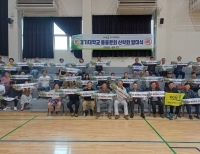 [단신] 산악회, 본교 동문의 버팀목이 될 수 있도록
[단신] 산악회, 본교 동문의 버팀목이 될 수 있도록
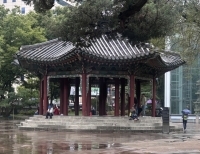 [사회메인] 노인 인구 1,000만 시대, 준비 없는 사회가 불안해
[사회메인] 노인 인구 1,000만 시대, 준비 없는 사회가 불안해
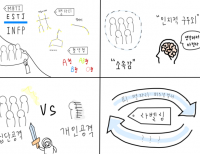 [네컷만화] 라벨링 문화
[네컷만화] 라벨링 문화
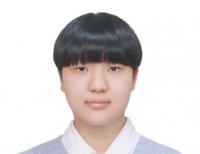 [진리터] 결국 우리 모두 돌아볼 것이니
[진리터] 결국 우리 모두 돌아볼 것이니

 목록
목록





